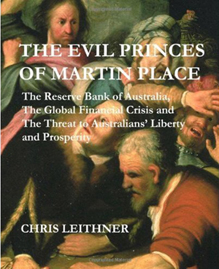|
 What
caused the "Global Financial Crisis" (GFC) that erupted in
mid-2007? What will be the consequences of the actions
undertaken by governments to combat it? What
caused the "Global Financial Crisis" (GFC) that erupted in
mid-2007? What will be the consequences of the actions
undertaken by governments to combat it?
The more things
change, the more they stay the same: the GFC is merely the
latest in a long series of economic and financial crises
that have punctuated the history of the past 250 or so
years.
Like its predecessors, three of which (namely the
Panic of 1907, Depression of 1920-1921 and Great Depression
of 1929-1946) this book analyses in detail, poor policies –
in particular, the existence of legal tender laws,
fractional reserve banking and central banking – are the GFC's ultimate causes.
The logic and evidence is
inescapable: in no financial and economic crisis have the
same non-monetary phenomena been present; and in no crisis
have these monetary phenomena been absent.
Scientists, it
seems, stand on the shoulders of giants; today's bankers,
mainstream economists and politicians, on the other hand,
continuously repeat the errors of their pygmy forebears.
The
intervention of government – and not the free market –
causes the financial crises in Wall Street that become
economic crises in Main Street.
Indeed, the GFC's eruption
demonstrates that "capitalism" (a term of abuse coined by
Karl Marx to smear his opponents) hasn't failed; socialism
has.
It wasn't extreme capitalism (a term of abuse coined by
ex-Prime Minister Kevin Rudd to smear his opponents) that
caused the panic and bust: it was the partial, corrupted and bastardised capitalism of the "mixed economy" that he and
the mainstream champion.
Accordingly, the eradication of
crises necessitates the repeal of pernicious laws (such as
legal tender) and the abolition of damaging practices
(namely fractional reserve and central banking).
|

